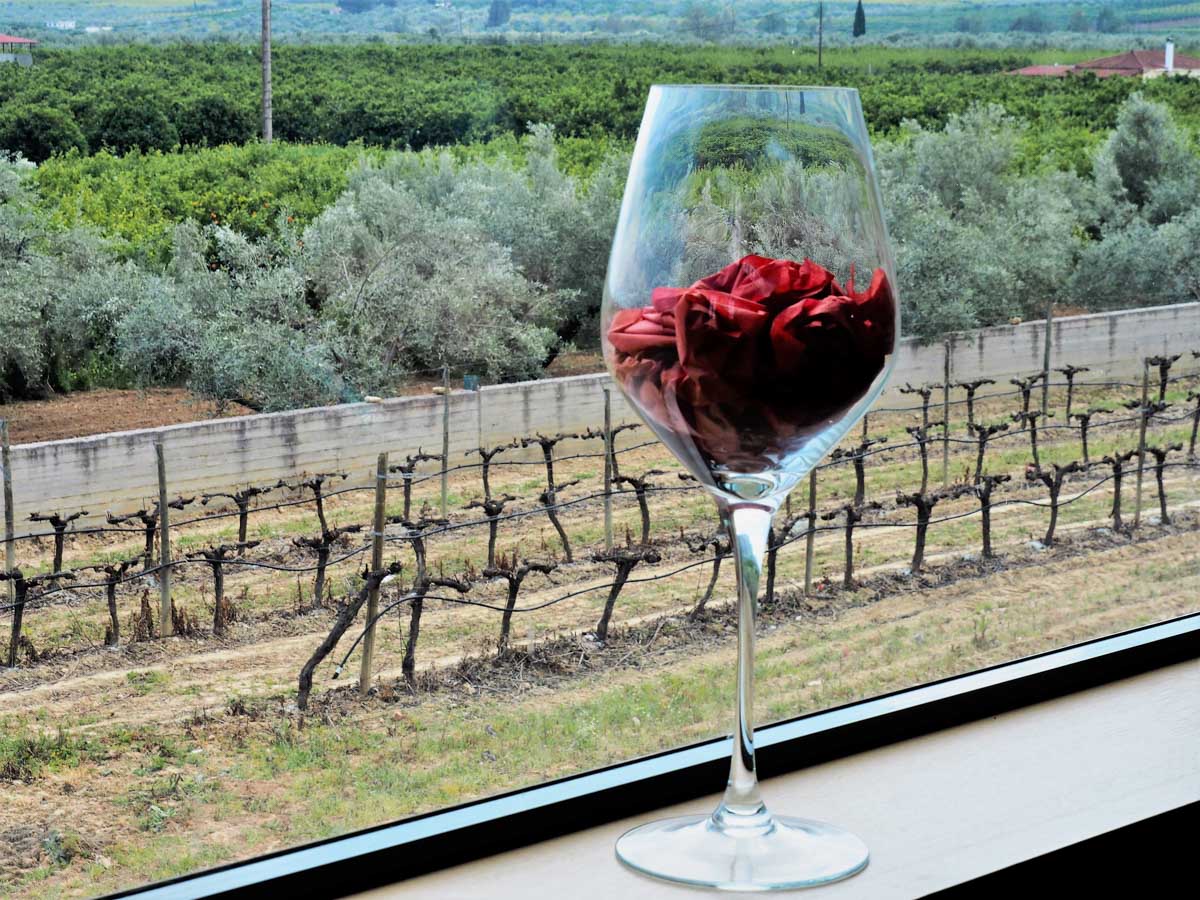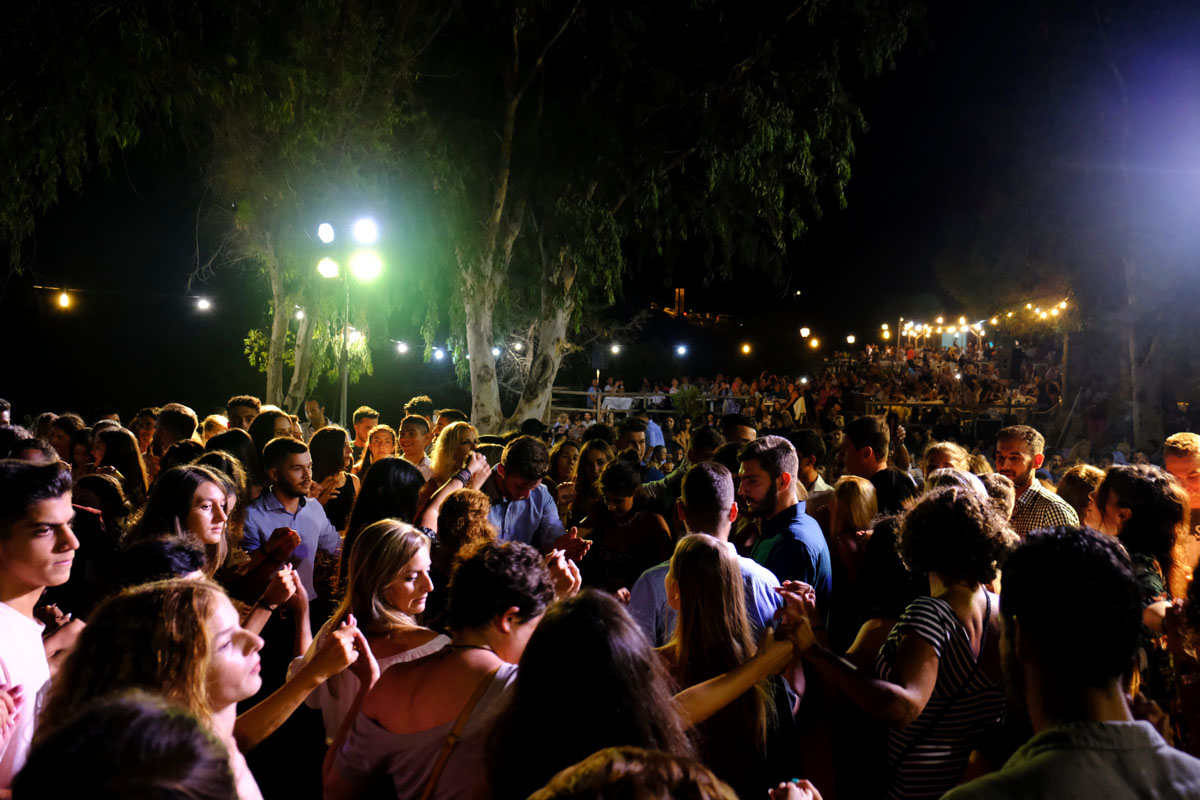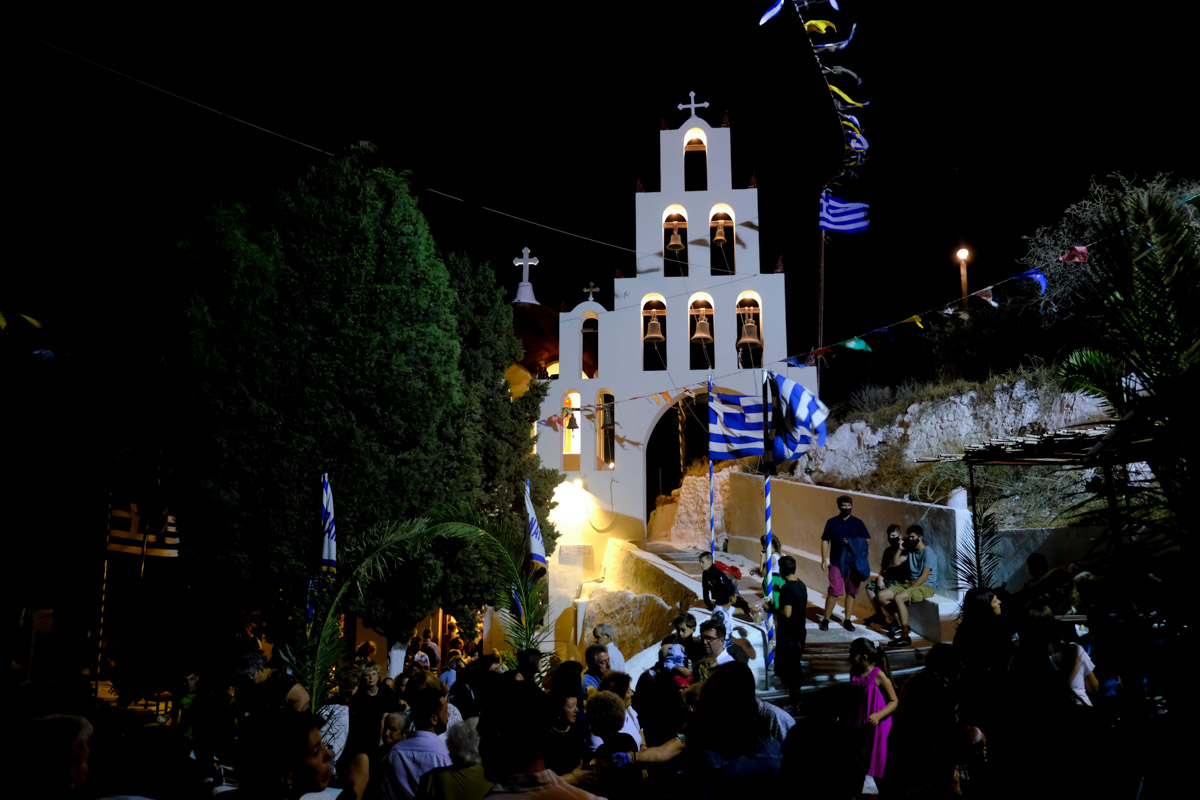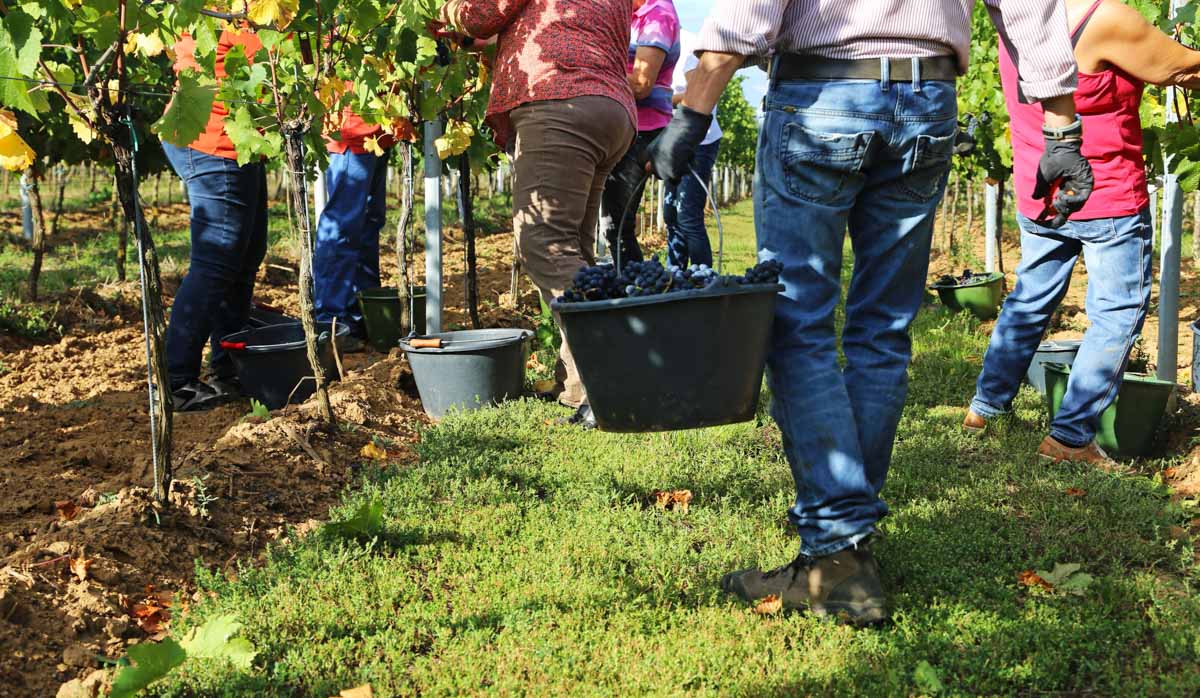Late summer is one of the most special times to experience Greece. There are the great religious observances of September, celebrating the Holy Cross. There is also the grape harvest, steeped in many centuries of tradition. Festivities accompany both, making September a wonderful time to get a taste of true Greek traditional life and culture.
Grape Harvest and Wine Making
The grapes grow heavy on the vine as August draws to a close. Vintners are checking their grapes daily, deciding on the peak moment to harvest them. Then it is the work of many hands, under the warm skies of August and late September. On smaller family vineyards, the harvest is the work of the family members plus a few friends. Harvesters are treated to warm hospitality, and great tables of rustic and delicious traditional food, made even more delicious with a sharp appetite from a satisfying day’s work. On larger wineries, hired hands help with the grape harvest, and they too are treated with similar hospitality. Hard work in all cases is followed with feasting, drinking, and laughter in the evenings.

This is likely exactly as it has been for millennia. Wine was central to the culture of ancient Greece, fueling symposia and the philosophical debates that occurred there. Special vessels were crafted to hold the wine, another to mix the wine with water (ancient Greek wine was very strong indeed), and to sip the wine from.
The world of Ancient Greece and the contemporary world come together in the culture of wine. Today, boutique wineries are making new regional wines featuring the grapes that grow best in their specific microclimates. These are recognized with a PDO designation. Nemea, the most famous wine-growing region of the Peloponnese, is synonymous with robust red Agiorgitiko. Another popular red associated with a region is Xinomavro – “black-sour’ – grape famous in Naoussa in the region of central Macedonia. Assyrtiko – a crisp white wine – is a specialty of Santorini, a grape whose aroma is enhanced by the mineral-rich volcanic soil, while Vidiano is a relative newcomer, cultivated on the island of Crete. Of course, in Greece there is nothing really new under the sun – these vines all have an ancient heritage – a taste of the past. Planning a trip around wine tasting introduces the visitor to some of the most beautiful and storied areas of Greece.
Panigiri tou “Timiou Stavrou” – the Celebration of the Holy Cross

September welcomes one of the most important of the “Panigyri.” This is a very special word in the Greek language – it means festivity, but a very specific kind. A Panigyri is a religious festival, associated with a specific holiday, such as the name day of a saint. The name day of a patron saint of a village is the day that the whole village celebrates. People will travel from a great distance to honor their village’s patron saint, and this is of course an occasion for people to see friends and relatives they don’t see every day – it’s truly a homecoming.
What happens at a Panigyri? Of course, there is a church service – this is a religious festival. But it is also a joyous event! There is always traditional food, music, and dancing. Traditional Greek dances are perfect for bringing a group together- all ages join in. Visitors too can learn the steps and may quickly catch on. The mood is infectious.
The Ascension of the Virgin, on the 15th of August, is a famous Panigiri. But there is another Panigiri that is very important, especially on the islands. This is the “Panigiri tou Stavrou” – The Feast of the Universal Exaltation of the Precious and Life-Giving Cross. This holiday happens on September 14th – when Greece is much less crowded – and it commemorates the finding of the true Holy Cross by Saint Helen, the mother of Saint Constantine (for whom Constantinople, the main city of Byzantium and today’s Istanbul, took its name).

This is a very big festival on some of the Greek Islands. In particular, there are great celebrations of Paros in the town of Aliki. There is a divine liturgy in the courtyard of the church, and later on there is feasting and dancing. On Nisyros, in Mandraki at the Monastery of the Holy Cross, there is a divine liturgy and then an evening of celebration- the traditional foods are goat with barley, and for dessert loukoumades – Greek donuts with a honey syrup. Dancing and lute playing of course follows. Kasos, a small and devout island and the southernmost of the Dodecanese island chain, is a very special place to experience any kind of religious festival. You will feel like a local at once on this warm and welcoming island. A religious service and afterwards music and dancing are joined by traditional foods. The Cycladic island of Tinos, so famous for its celebrations of the Ascension of the Virgin, also celebrates the Holy Cross – the village of Ktikados has a Catholic Church of the Holy Cross and this is one of the main celebrations of the village. In Chios, the celebrations take place in the village of Kardamyla, where there is an Orthodox church dedicated to the holy cross.
Greece in September
Have you ever visited Greece in September? If you haven’t yet taken part in a traditional Panigiri, or a harvest festival, this is your sign to plan a trip to Greece soon.





